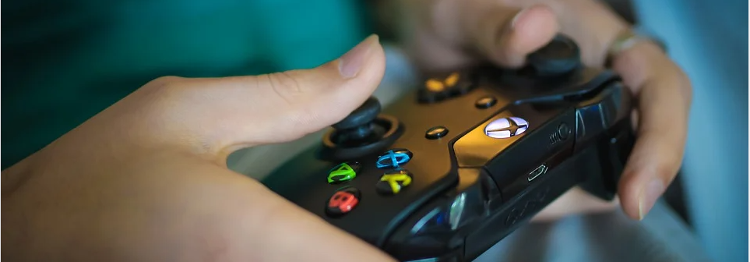
Background
Stroke is one of the most common causes of disability across the world. Up to 80% of acute stroke patients experience loss of arm function, which affects quality of life. Arm impairment often persists after rehabilitation has ceased. Recovery may be optimised by intensive functional training, but this can be difficult after stroke e.g. due to fatigue, pain, or depression. Commercial games may improve arm function after stroke (Thomson et al, 2014), by increasing engagement with activities at home, providing a low-cost adjunct to rehabilitation with off the shelf technology. However, most commercial games have not been designed for people with disabilities and require adaptation. Additionally, music psychology research demonstrates the benefits of preferred music listening on mood and of rhythmic auditory stimulation on arm function in stroke survivors. At GCU, we have developed a bespoke prototype music game, which integrates rhythmic auditory stimulation with repetitive practice, based on individuals’ preferred music. This game, which uses off-the-shelf technology, has been specifically designed for stroke survivors with a range of impairments (Averell & Knox, 2019).
Aims & Objectives
To further develop this prototype to optimise its therapeutic potential and usability by considering design requirements from stroke survivors/carers, and health professionals such as occupational therapists/ physiotherapists. Based on the applicant objectives may comprise:
- To conduct a systematic review of music-based gaming for stroke arm rehabilitation.
- To further develop, with engineers in audio-technology, a prototype music-based game, through involvement of stroke survivors/carers, and health professionals.
- To conduct a feasibility study, exploring the feasibility, acceptability and preliminary effects of using the prototype.
Specifications
The successful applicant will be an Occupational Therapist or Physiotherapist holding the minimum of a first degree (2:1 or above). An interest in games for health, and previous experience of mixed methods or qualitative research is desirable. This project is available as a 3 years full-time or 6 years part-time PhD study programme with expected start date of 1 October 2021
Deadline is Monday, February 22, 2021. Apply at: https://gcu.radiusbycampusmgmt.com/ssc/aform/EBc05sBc086G0x671m0xK.ssc
Contact Katie.thomson@gcu.ac.uk for more information
Reference:SHLS20061